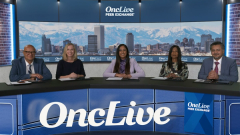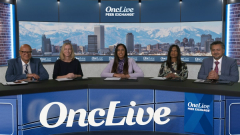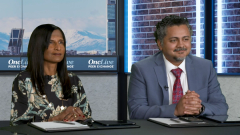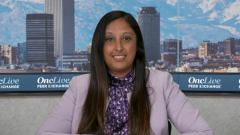
The Evolving Treatment Paradigm for Transplant Ineligible MM
The expert panel discusses how the standard of care for transplant-ineligible NDMM has evolved and reviews recent updates in this space.
Episodes in this series

This is a video synopsis/summary of a Peer Exchange featuring Krina K. Patel, MD, MSc; Amrita Krishnan, MD; Caitlin Costello, MD; Saad Z. Usmani, MD, MBA, FACP; and Rafat Abonour, MD.
The discussion focuses on initial treatment approaches for transplant-ineligible multiple myeloma patients. Historically, doublet regimens were used, but data now supports triplet regimens like lenalidomide-bortezomib-dexamethasone (RVd) and daratumumab (dara) plus RVd as superior for progression-free and overall survival, with manageable toxicity. The phase 3 SWOG trial is comparing Dara-lenalidomide-dexamethasone and RVd triplets. Adding anti-CD38 monoclonal antibodies to lenalidomide-based triplets as quadruplet regimens further improves responses.
Results from the phase 3 IsKia trial adding isatuximab to RVd were recently announced, demonstrating improved progression-free survival vs RVd alone. Balancing efficacy, toxicity, quality of life, and goals of care is still needed, especially in frailer patients where depth of response may not correlate with clinical benefit. Ongoing studies are evaluating quadruplet safety and efficacy specifically in frail, elderly transplant-ineligible populations.
Video synopsis is AI-generated and reviewed by OncLive® editorial staff.










































